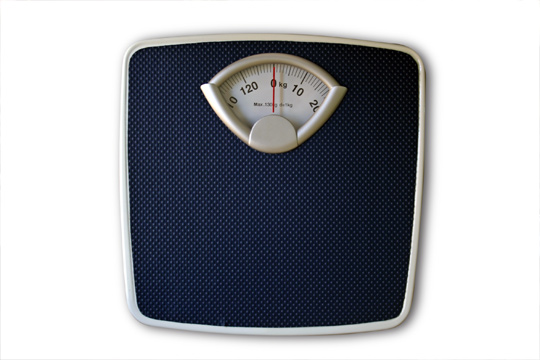Nutrition 101
Nutrition Myth-busters: Weight Loss (Part 2)

Senior Culinary Nutritionist Natalia Hancock dispels some more common myths concerning how fat and carbs affect body weight.
Myth:
“Eating fat will cause you to gain weight”
Facts:
-
Fat is energy-dense and contains 9 calories per gram, but eating the right amount of healthy fats will not cause weight gain. Fats should make up 20-35% of your total calories.
-
Fats -- especially unsaturated fats like those found in nut and seeds, fish, poultry, avocado, olive and plant oils -- are an important part of your diet. Fats can maintain healthy skin and hair, insulate your body organs and support healthy cell functions
-
A diet too low in fat and fatty acids may cause poor vitamin absorption (A, D, E and K), depression, cancer and could potentially lead to gall bladder disease
-
Omega-3 fatty acids are essential fatty acids that our bodies cannot make. They can reduce inflammation and may help lower risk of many common chronic diseases such as heart disease, cancer and arthritis
-
Saturated fats should be limited to no more than 10% of your daily calorie intake (around 200 calories or 22 grams based on a 2000 calorie diet). They are found mostly in red meat, butter, cheese, cream, palm and coconut oils
-
Trans-fats containing partially hydrogenated oils should be avoided completely as they have no nutritional benefit (and have actually been banned in NYC!). On ingredient lists look out for shortening, partially hydrogenated oil or hydrogenated oil -- even if the label says 0g trans-fat. Trans-fats are typically found in shortening, margarine, peanut butter, baking mixes, ice cream, and tartar sauce
Myth:
“Eating carbs will cause you to gain weight”
Facts:
-
Eating the right amount healthy carbs will not cause weight gain
-
Carbs are not only found in sugar, sweets, flour and grains but also in fruits, vegetables, legumes and dairy
-
It is wise to limit intake of carbs that are energy-dense, have a high glycemic index and are lacking in nutrients -- such as refined or heavily processed flours, grains, potatoes, corn, sugar and other sweeteners
-
It is not recommended to cut back on your intake of fruits and vegetables as they are packed with nutrients such as vitamins, minerals, fiber and antioxidants, while also being low in calories
-
Whole grains, legumes and potatoes are also packed with nutrients and are part of a healthy diet, but are slightly more energy-dense than fruits and vegetables. Exercise portion control and eat unrefined, minimally processed carbs
-
Many dieters experience weight-loss on a low carb diet due to the fact that they are reducing total calorie intake
-
Good sources of carbs include fruits, vegetables, legumes, nuts and whole, intact grains as well as unsweetened dairy
-
Carbs to limit or avoid include sugars and sweeteners such as syrups, honey, agave, molasses, jams and jellies, refined flours and grains (or any products containing them)
Read the first part of our myth-busting post on weight loss to find out more about skipping meals and avoiding gluten.
nutrition advice, nutrition facts, nutrition myths, myth-busting
Latest Posts

October 16, 2018 by Doreen Garelick, Dietetic Intern
Our intern Doreen attended a food waste summit for restaurants and compiled these tips to help food service operators redirect food waste from landfills.
Read more ›
Nutrition 101

Nutrition 101
September 26, 2018 by Doreen Garelick, Dietetic Intern
Ever notice headlines about rapid weightloss? Dietetic Intern Doreen Garelick looks deeper into a recent eye-catching headline to see if there's any truth behind it.
Read more ›
Connect
Blog Search
Categories
SPE Certified Newsletter
Sign up for news on the latest SPE-certified venues, events and SPE updates.
We will never share your personal information with a third party.




Connect
 Follow us on Twitter
Follow us on Twitter Friend us on Facebook
Friend us on Facebook Follow us on Pinterest
Follow us on Pinterest Follow us on Instagram
Follow us on Instagram Read our Blog
Read our Blog Watch videos on YouTube
Watch videos on YouTube Watch videos on Vimeo
Watch videos on Vimeo Connect with us on Linkedin
Connect with us on Linkedin Find us on Foursquare
Find us on Foursquare
Tweets by @SPEcertifiedBlog Search
Categories
SPE Certified Newsletter
Sign up for news on the latest SPE-certified venues, events and SPE updates.
We will never share your personal information with a third party.